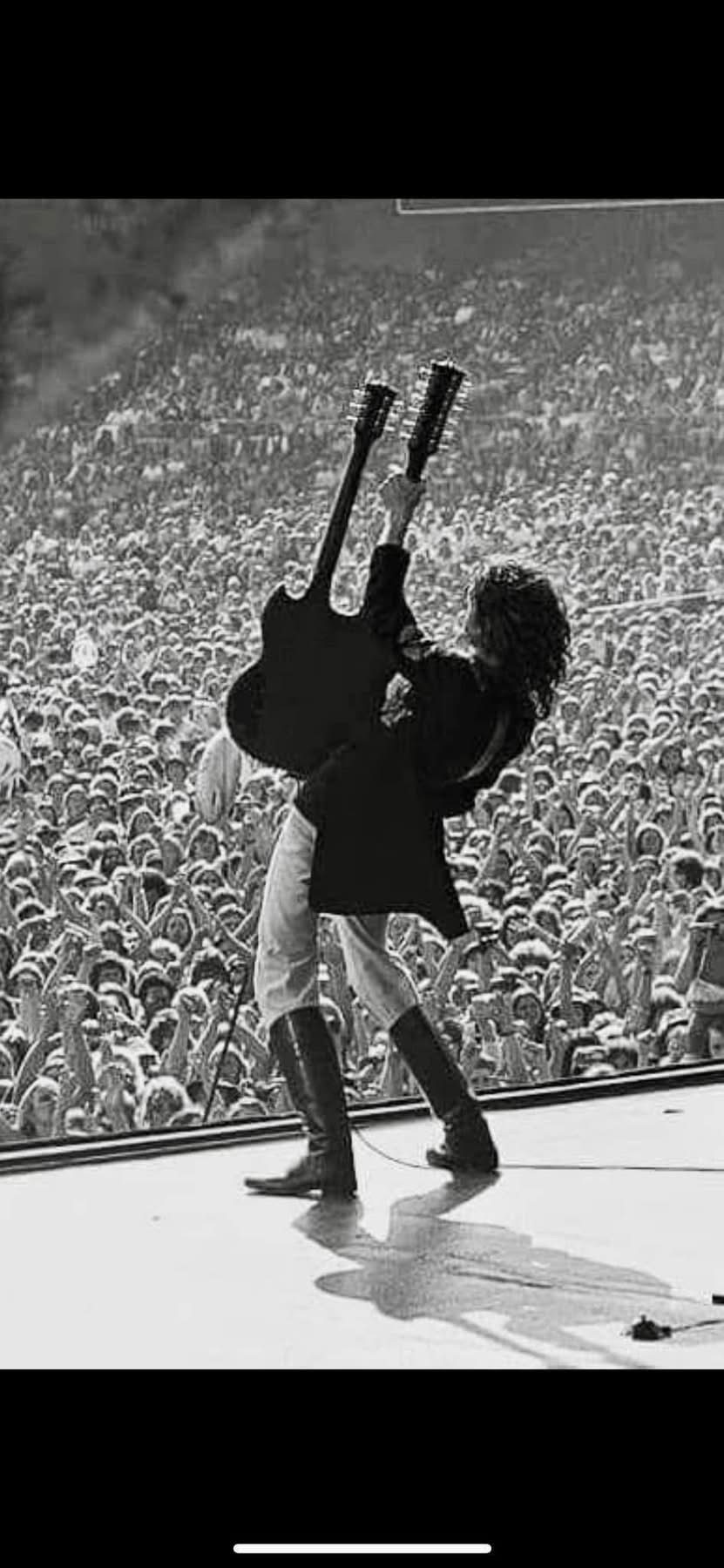On July 24, 1977, Led Zeppelin took the stage at the Oakland Coliseum in California for what would become their final concert in the United States. Jimmy Page, clad in his iconic dragon suit, delivered soaring guitar solos that echoed across the stadium, his fingers dancing across the fretboard with raw intensity. The band was nearing the end of their troubled 1977 North American tour, which had been marked by tension, violence, and health issues. But that night, Zeppelin still roared with power—John Bonham’s thunderous drumming, John Paul Jones’ steady bass lines, and Robert Plant’s haunting vocals electrified the crowd.
Unbeknownst to the audience and the band, tragedy loomed just ahead. Two days later, Robert Plant received devastating news: his five-year-old son, Karac, had died suddenly from a stomach virus back in England. The shock and heartbreak were overwhelming. Plant flew home immediately, and the band canceled the remaining seven shows of the tour, including high-profile dates at New Orleans and Chicago.
The loss marked a turning point in Led Zeppelin’s history. Though they would go on to record one more studio album, In Through the Out Door (1979), the band never performed again on U.S. soil as Led Zeppelin. Karac’s death cast a long shadow, and Plant’s grief forever changed the band’s trajectory.
That July night in Oakland, full of fiery riffs and epic anthems, would become a poignant closing chapter to their American legacy. For fans, it remains a bittersweet milestone—Led Zeppelin at their peak, unknowingly delivering a farewell to the country that had helped elevate them to rock immortality.










